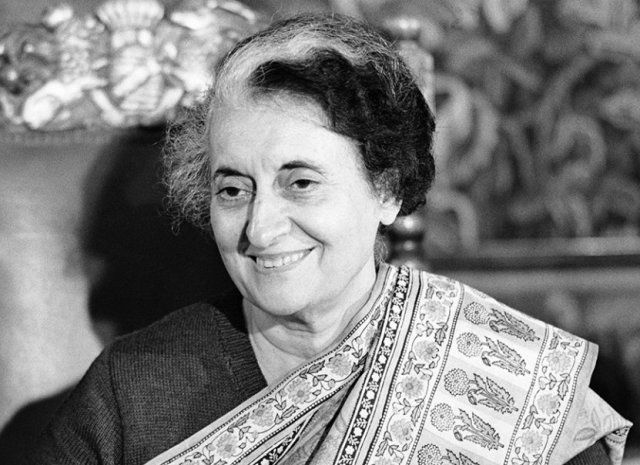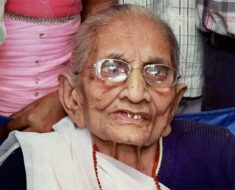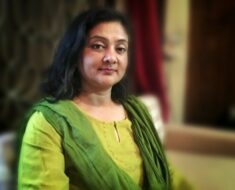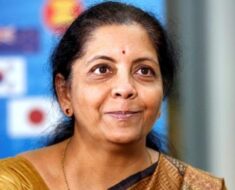Indira Gandhi remains a pivotal figure in Indian history, her life and career marked by both remarkable achievements and considerable controversy. This comprehensive biography explores the multifaceted legacy of India’s first and only female Prime Minister.
Wiki/Biography, Caste
Indira Priyadarshini Nehru, born into a Kashmiri Pandit family on November 19, 1917, in Allahabad (now Prayagraj), Uttar Pradesh, India, lived a life deeply intertwined with India’s struggle for independence and its subsequent political landscape. Her grandfather, Motilal Nehru, was a key activist in the Indian Independence Movement, and her father, Jawaharlal Nehru, became India’s first Prime Minister. Her upbringing was shaped by her father’s frequent absences and her mother’s prolonged illness, fostering an early affinity for Gandhian philosophy.
Her education was eclectic, blending homeschooling with attendance at various institutions across India and Europe, including:
- Modern School, Delhi
- St. Cecilia’s and St. Mary’s Christian convent schools, Allahabad
- International School of Geneva, Switzerland
- Ecole Nouvelle, Bex, Switzerland
- Pupils’ Own School, Poona and Bombay
- Visva-Bharati University, Shantiniketan
It was at Visva-Bharati that Rabindranath Tagore bestowed upon her the name Priyadarshini. Her academic journey included challenges, notably her initial failure in the Oxford University entrance exam due to Latin. However, she persevered, eventually excelling in history, political science, and economics at Somerville College, Oxford.
Physical Appearance
Here’s a glimpse into Indira Gandhi’s physical attributes:
| Feature | Description |
|---|---|
| Height (approx.) | 5’4″ |
| Eye Color | Black |
| Hair Color | Salt & Pepper |
Family
Indira Gandhi was the daughter of Jawaharlal Nehru and Kamla Nehru. She had a brother who died in infancy. While studying in England, she reconnected with Feroze Gandhi, whom she knew from Allahabad. Their marriage in 1942 marked the beginning of a significant chapter in her life. Their sons, Rajiv and Sanjay Gandhi, both had impactful roles in Indian politics. Rajiv Gandhi later served as Prime Minister, and Sanjay Gandhi played a prominent role during the Emergency.
The family tree expanded with daughters-in-law Sonia and Maneka Gandhi, and grandchildren Rahul, Priyanka, and Varun Gandhi. Robert Vadra became a grandson-in-law through marriage to Priyanka Gandhi.
Career
Indira Gandhi’s political journey began with an unofficial role as an assistant to her father during his tenure as Prime Minister. She rose through the ranks of the Indian National Congress, eventually becoming its President. Her career was marked by significant events, including the dismissal of the Communist-led Kerala government and her election as Prime Minister after the deaths of Nehru and Lal Bahadur Shastri. Her political strategies and the decisions she made during her time as Prime Minister remain subjects of ongoing debate and analysis.
Her first term faced considerable challenges, including economic difficulties and political infighting. The 1971 victory in the Indo-Pak War and the creation of Bangladesh stand as a major achievement of her administration. The Emergency, however, remains a deeply controversial period, marked by restrictions on civil liberties and human rights violations. Her subsequent electoral victories and defeats highlight the complexities and fluctuations of her political career.
Death
Indira Gandhi was assassinated on October 31, 1984, by her Sikh bodyguards, Satwant Singh and Beant Singh, in the aftermath of Operation Blue Star. Her death marked a tragic end to a life that profoundly shaped the course of Indian history.
Controversies
Indira Gandhi’s tenure as Prime Minister was not without its controversies. The Allahabad High Court judgment declaring her 1971 election invalid, the imposition of the Emergency, and the forced sterilization campaign remain highly debated aspects of her legacy. Operation Blue Star, while aimed at addressing Sikh militancy, sparked significant controversy and is still discussed today.
Awards/Honour
Indira Gandhi received numerous accolades throughout her life and posthumously, reflecting the significant impact she made on the national and international stage.
- Bharat Ratna (1971)
- Honorary Doctorate from the University of South Pacific, Fiji (1981)
- Bangladesh Freedom Honour (posthumously, 2011)
Places/Schemes Named In Her Honour
Numerous places and schemes across India bear Indira Gandhi’s name, a testament to her enduring presence in the national consciousness.
- Indira Point
- Indira Gandhi International Airport, New Delhi
- Indira Gandhi National Open University (IGNOU)
- And many more institutions, stadiums, and landmarks.
Facts
Several interesting facts further illuminate Indira Gandhi’s life and times. These include her relationship with her yoga guru, her nationalization of banks during her first term, the details surrounding her assassination, and various claims and anecdotes that continue to shape perceptions of her.







